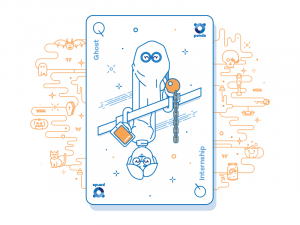 It is this time of the year when we are all going to Halloween costume parties, playing pranks on each other and visiting haunted attractions. Why do we do it? Well, we want to ward off the evil spirits while having fun in the process. There is nothing wrong with that!
It is this time of the year when we are all going to Halloween costume parties, playing pranks on each other and visiting haunted attractions. Why do we do it? Well, we want to ward off the evil spirits while having fun in the process. There is nothing wrong with that!
However there are plenty of scary things going on in real life too. Instead of going to Knott’s Scary Farm, turn on the TV. We’ve come up with a list of modern world fears. We sincerely believe that 10 years from now you will be more afraid of hackers in Eastern Europe than from going to the dentist. In the year 2025, the Bogeyman will no longer be after you, he most likely will be after your virtual reality goggles and your credit card information!
Here are a few things people are scared of this Halloween
DDoS-o-phobia
Early this week half the internet went down after an unprecedented DDoS attack. The attack was so big that people were unable to complain on Twitter, as Twitter itself was down. Experts say an army of smart fridges, webcams, DVRs and other IoT devices managed to ruin your Monday morning! This on its own sounds like the plot of a Hollywood blockbuster, a bad one obviously. The media reported that some manufacturers left their devices so vulnerable to hacking attacks that they now are having some of their products recalled.
Imagine telling someone, 20 years ago, that an army of smart fridges and webcams would cause a major disruption in people’s lives! They would probably have laughed and brushed you off as a joker. Today though it is reality and is a real threat to our everyday life. Twitter and Facebook are like electricity, people start panicking when these services go missing.
Hack-o-phobia
So far we’ve learned that there are millions of people literally begging to be hacked as they don’t have their cell phone passwords set. The good news is that the other 2/3 of the US adult population actually have their cell phone passwords set and they are not interested in giving it up easily. Monsters are scary, but sharing your precious moments and credit card information with complete strangers whose main purpose in life is to ruin yours, sounds even scarier.
People should be scared, especially if they are not doing much to prevent hackers from stealing information from their smart devices.
Cell-phone-damage-o-phobia
The dog used to be man’s best friend, now it is the smartphone! A recent study confirmed that every day we spend more than four hours staring at our smartphones. We’ve never been as reliant on smartphones as we are now. With this in mind, we are attached to our smartphones and one of our biggest fears is of damaging them, or even worse, having our device in the hands of people who want to take advantage of all the confidential information on it.
So before you start watching horror movies at home – turn on the news channel, the threat is real and your fears are justified. Be prepared, be very prepared… by downloading the best free antivirus software in the world.
Panda Security wishes you a very scary Halloween! Stay safe!
The post Modern Day Fears – Don’t Let The Monsters Get You appeared first on Panda Security Mediacenter.


 Knock knock! Trick or treat! Companies and cybercriminals play the same game. You could be opening back doors to cybercriminals this year, without even knowing it. You’ll lose this game if you don’t fight back. Ransomware attacks will capture your documents and the attackers will be expecting a big juicy reward (if you want your files back, that is). This Halloween, beware!
Knock knock! Trick or treat! Companies and cybercriminals play the same game. You could be opening back doors to cybercriminals this year, without even knowing it. You’ll lose this game if you don’t fight back. Ransomware attacks will capture your documents and the attackers will be expecting a big juicy reward (if you want your files back, that is). This Halloween, beware! Attacks by staff with privileged access represents one of the greatest threats for the security of the corporate information and data of your customers. Research conducted by
Attacks by staff with privileged access represents one of the greatest threats for the security of the corporate information and data of your customers. Research conducted by  At the beginning of this month, an employee from the US government, Harold Thomas Martin,
At the beginning of this month, an employee from the US government, Harold Thomas Martin,  Start using a cybersecurity solution that has advanced protection features, and that also has the capacity to detect and remedy possible threats.
Start using a cybersecurity solution that has advanced protection features, and that also has the capacity to detect and remedy possible threats.











